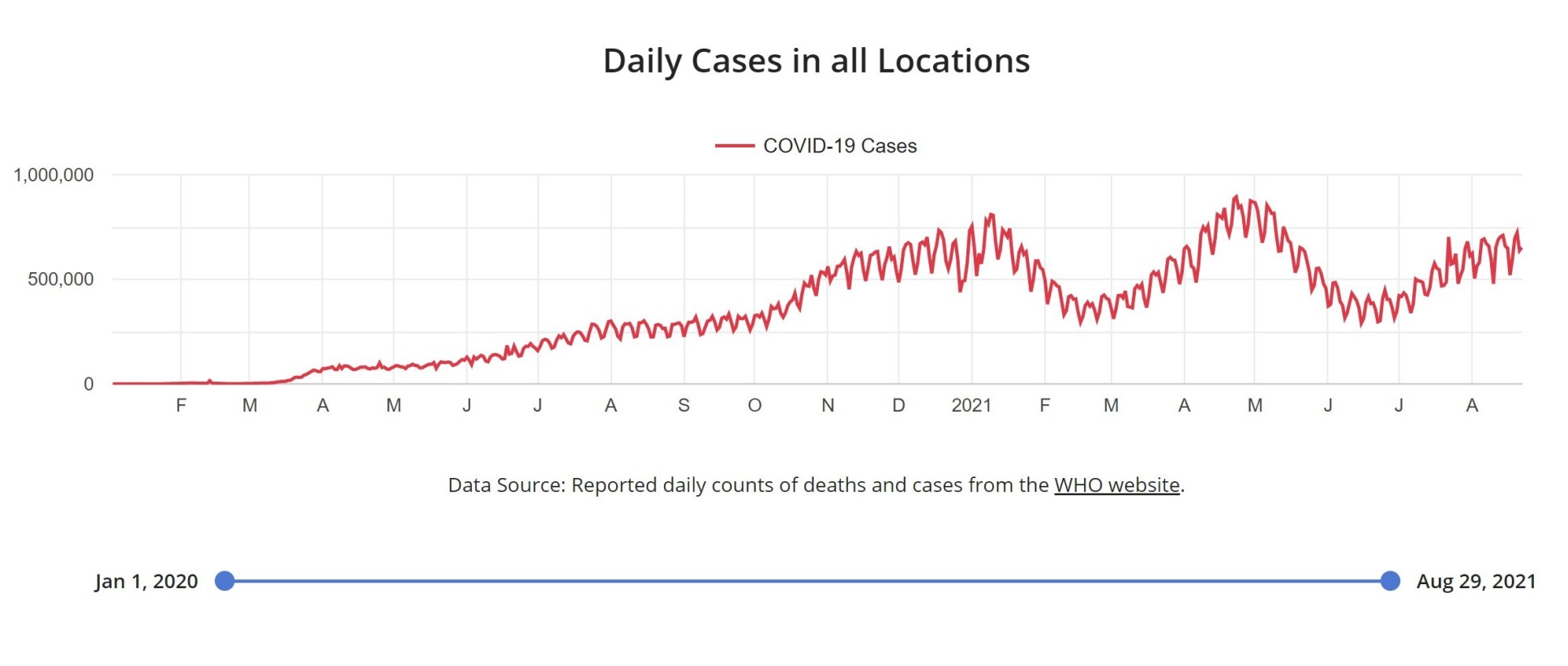Real-time epidemic forecasting tool to support global outbreak monitoring

Imperial researchers have developed a new forecasting tool to support global outbreak monitoring for COVID-19 and other deadly diseases.
The project, Mapping the Risk of International Infectious Disease Spread (MRIIDS), aims to inform key health decision-makers at national and regional levels of the risks of an epidemic spreading in real-time, and aids government and non-governmental decision-makers as they prepare for the possible arrival of an infectious disease threat to their region.
Predicting the number of daily cases or deaths

The user-friendly tool is designed to both forecast case counts during infectious disease outbreaks and also estimate the risk of infectious disease cases arriving from and departing to specific geographic areas.
The cloud-based tool is reshaping current forecasting methods by automating the integration of different open-access data streams to inform infectious disease outbreak forecasting algorithms in near real-time.
The tool was initially designed and based on the 2014-16 West Africa Ebola outbreak, but is currently being used to produce weekly global COVID-19 forecasts.
'Real-time snapshot of epidemic trends worldwide'
Dr Anne Cori, from the School of Public Health, said: “In MRIIDS 2.0, we have implemented a generic epidemic forecasting method, which relies solely on open access data and opensource code. Currently we are using it to produce global COVID-19 forecasts every week, providing a real-time snapshot of epidemic trends worldwide. But most importantly we have designed an infrastructure that is ready in advance of the next epidemic to enable an early and continuous risk assessment.”
Dr Sangeeta Bhatia, from the School of Public Health, said: "Our goal with MRIIDS 2.0 is to develop an analysis pipeline – from ingesting data, feeding them into transmission models, to visualising the outputs - that can be reused to answer questions about infectious disease spread. We hope that this tool will serve as a central resource for infectious disease forecasting in the future"
Dr Pierre Nouvellet, visiting academic at the School of Public Health, said: “While forecasting the spread of infectious disease is essential for public health and policy planning, we still lag behind forecasting infrastructures seen in meteorology, for instance. With MRIIDS 2.0, we are getting a step closer by integrating advances in our understanding of disease spread, advances in statistical modelling, and, not least, advances in data availability.”
Dr Britta Lassmann, former program director at the International Society for Infectious Diseases, said: “With MRIIDS 2.0, we are one step closer to real-time infectious disease outbreak forecasting. Our tool enables data-driven responses for policymakers and individuals globally, allowing resource allocation tailored to the risk level in a country or region.”
The platform, MRIIDS 2.0, was developed by Imperial’s Medical Research Council (MRC) Centre for Global Infectious Disease in collaboration with the International Society for Infectious Diseases and its program, ProMED, the University of Sussex, HealthMap at Boston Children’s Hospital/Harvard Medical School, healthsites.io, and the University of California Davis. The development of MRIIDS 2.0 was funded through USAID, Wellcome, PandemicTech, and a California-based philanthropic donor.
To explore the platform, visit www.mriids.org. The Methodology for this was peer reviewed and published in Nature.
Article supporters
Article text (excluding photos or graphics) © Imperial College London.
Photos and graphics subject to third party copyright used with permission or © Imperial College London.
Reporter
Dr Sabine L. van Elsland
School of Public Health
Stephen Johns
Communications Division
